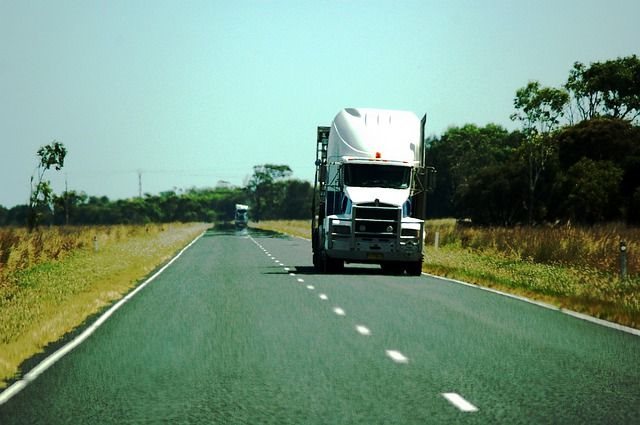
Top stories






AutomotiveHilux Custom Builds offers purpose-built solutions for your business
Toyota South Africa Motors 16 Feb 2026
More news


Marketing & Media
Ads are coming to AI. Does that really have to be such a bad thing?














While the socio-economic environment in South Africa, which is marred by an abnormally high rate of unemployment, cannot be ignored or dismissed for some of the social ills, there have also been elements of criminal opportunism.
The past 18 months have not been any easier for the sector. The continuance of sporadic torching of trucks and attacks on truck drivers, service delivery protests and looting, the lockdown and various restrictions associated with the Covid 19 pandemic have further crippled the industry.
Due to the restrictions and limitation of transportation of essential goods during the hard lockdown, transporters have seen a massive drop in their turnovers, with most having to downsize and some even permanently closing. Those who are lucky enough to still be operational now have to stretch their staff and chase deadlines, which places further pressure and fatigue on drivers due to the long hours on the road – a major concern.
With the recent extensions in the validity of expired driver’s licenses, most of the drivers have not had to do their medical check-ups in a while in order to renew their professional driving permits (PRDPs), which is a health and safety hazard. These factors are highlighted by the rise in the number of single-vehicle accidents, which can be attributed mainly to driver error. This has been the main reason why, over the past few years, Santam has collaborated with the Road Traffic Management Corporation (RTMC) to advocate for driver wellness.
With these challenges, Santam Heavy Haulage, as an insurance partner to the trucking industry, for example, has sought to educate both clients and brokers on how to better manage and mitigate risk in order to keep insurance premiums at a minimum. Insurance has traditionally been viewed as a grudge purchase, but recent events have highlighted the critical role it can play in minimising financial loss.
Being in the digital age, technology has become an important part of any business and the trucking industry is no exception. Telematics should be a necessity for transporters, not only for data collection but also for proactive risk management, with various safety features being incorporated in most new model trucks.
Route planning, which requires information gathering, is also important. Where intel has been collected on planned attacks on trucks, Santam has always tried to share the information with our stakeholders to enable them to avoid certain routes. We also rely on law enforcement and private security companies to offer security in identified hot spots.
To be successful, businesses need to prioritise their people’s wellbeing. Drivers are the driving force behind the trucking industry. Entrusting them with assets and cargo worth millions requires that they are equipped with the necessary skills, a conducive working environment, and regular access to medical check-ups to help them make better health choices.
With the rapid advancement of technology, driver training has become vital not only to sharpen driving skills, but also to familiarise drivers with the new model trucks that are constantly being introduced to the market. Encouraging drivers to take regular stops during trips helps to reduce fatigue, which in turn minimises the chances of collision, which may lead to unwanted downtime in an already strained economic environment.
Whilst we consider ourselves specialists in HCV and cargo insurance, we are operating in an ever-changing landscape that present new challenges on a daily basis, some never experienced before. This has compelled us to be flexible in our thinking and the way we do insurance. With various interactions, discussions, and collaboration with all stakeholders, we can ensure the sustainability of the industry. We must adopt a partnership, future-fit approach.